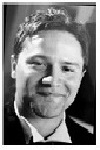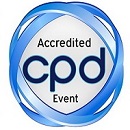
Pasquale Massimiliano Falcone
Aggregate Professor
Department of Agricultural Sciences, Food and Environmental, Polytechnic University of Marche
Italy
Biography
Pasquale Massimiliano Falcone is the Aggregate Professor and permanent Researcher at the Department of Agricultural Sciences, Food and Environmental of the Polytechnic University of Marche since November 1st, 2010, and member of the Committee of the Agricultural, Food and Environmental Sciences PhD Course at the Department for the 2013-2014 period. He was the winner of the Prize awarded by the Polytechnic University of Marche Researcher for the year 2012 in recognition of the quality of scientific research carried out. He earned the title of Doctor of Philosophy in Biotechnology of Food Products in 2003 with the thesis \\\\\\\"Approaches to non-destructive quality control in bakery products\\\\\\\" From 2008 to 2010 he was President and Researcher Leader of the Research Society of Vinegar Fermentation - CRACEF SrL, Spin-Off activated by the University of Modena and Reggio Emilia.
Research Interest
Dr. Falcone\\\'s research works are focused on the three following topics: (1) objective definition and quantitative characterization of the major quality markers of composition, microstructure, rheology, perceived texture and health-oriented functionality of food products and beverages as well as of their relationships, starting from theoretical knowledge of the mechanisms and kinetics underlying their changes and using non-destructive analytical and imaging techniques (dynamical mechanical and dynamical rheological analysis, phase-contrast microtomography, size-exclusion high performance cromatography); (2) modeling the time-dependent decay of the food and beverage quality following a product-packaging-dependent approach (3) development of new approaches for the rational food design and quality diagnosis.

